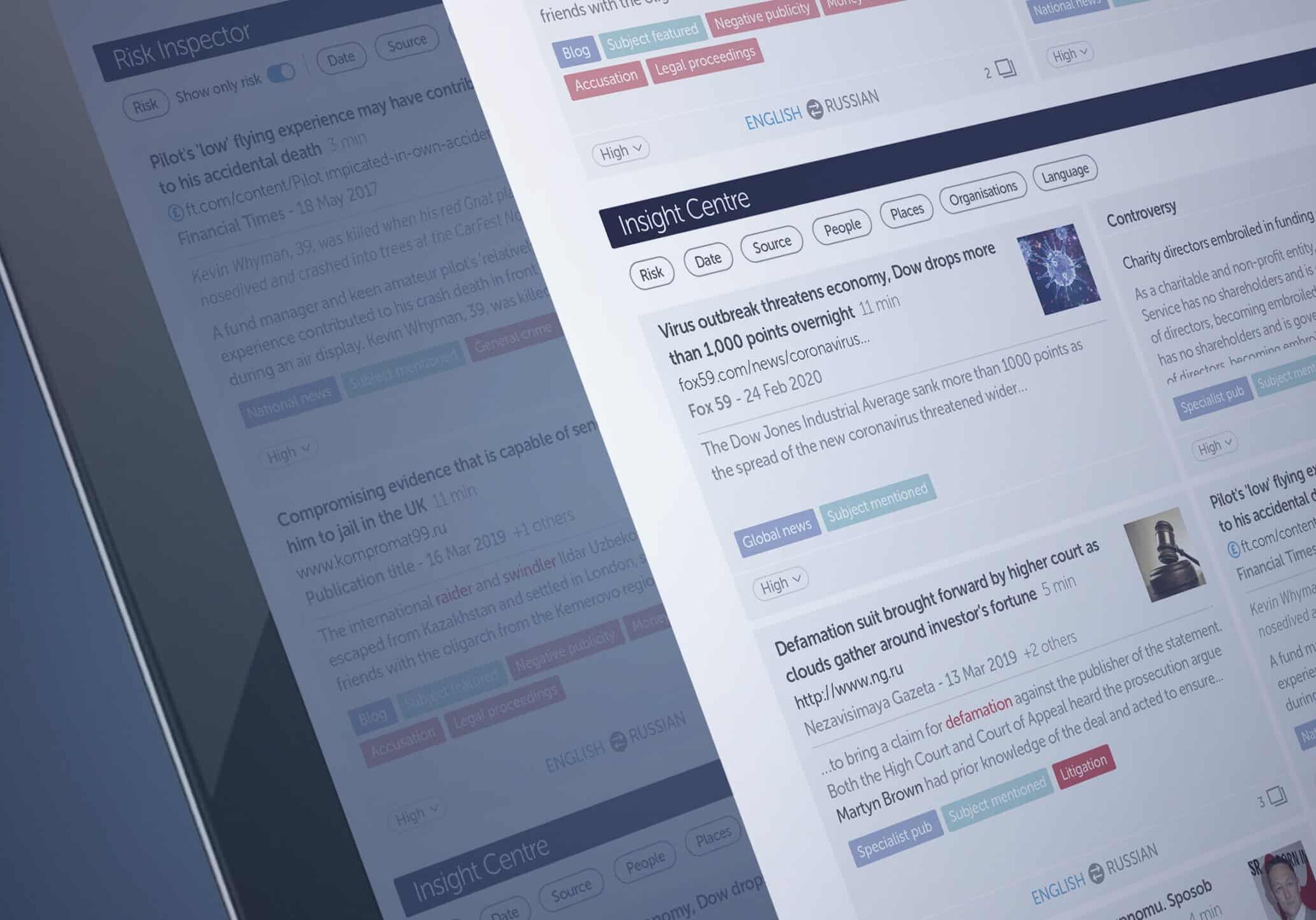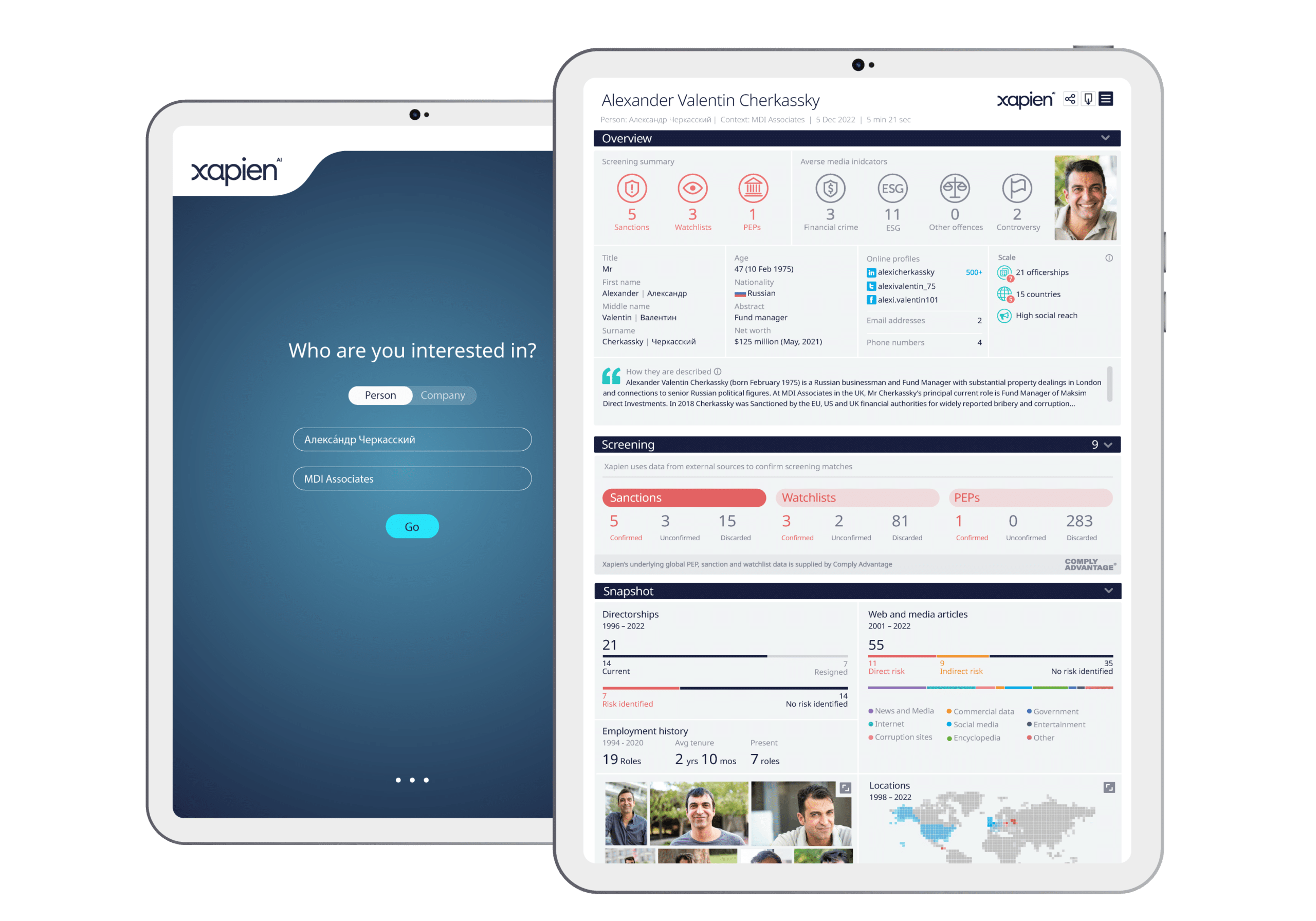New regulatory expectations for research partnerships. Are you doing your due diligence?
To protect research integrity and future-proof funding, universities need to know who they're partnering with.
Binary answers from databases lack context to understand the story behind criminal or foreign interference risks.


Insights come from deep research, not surface-level searches
Knowing a research partner is more than a quick web search. Researchers and compliance officers need to search for background information, review their findings, and assess risk factors individually... which can take hours.
Research partner due diligence at scale
Xapien doesn't stop at databases. It combs the entire indexed internet to deliver concise reports on individuals or companies worldwide. It casts a wide lens on potential partners and funders – summarising comprehensive risks from sanctions to allegations, corporate structures to key associates, and their wider online reputation. Its succinct reporting untangles the web of information, revealing deep insights instead of surface-level responses.






NSIA survival guide: How not to lose research funding
The UK has a world-leading status in R&D, and the higher education sector is ripe for global investment. However, new regulations designed to protect national security put all this at risk. Failure to comply not only risks research funding, but the broader mission of driving innovation and knowledge sharing.
This guide will take you through the regulatory framework that shapes the NSIA’s due diligence requirements, and how AI can help you meet them.

Xapien streamlines due diligence
Xapien's AI-powered research and due diligence tool goes faster than manual research and beyond traditional database checks. Fill in the form to the right to book in a 30 minute live demonstration.





